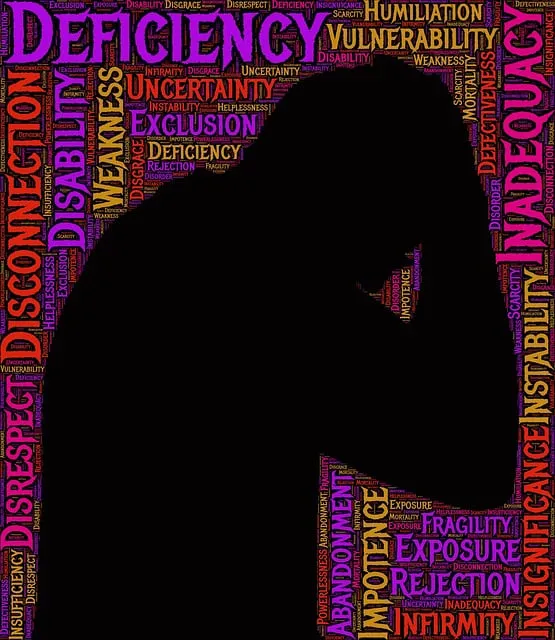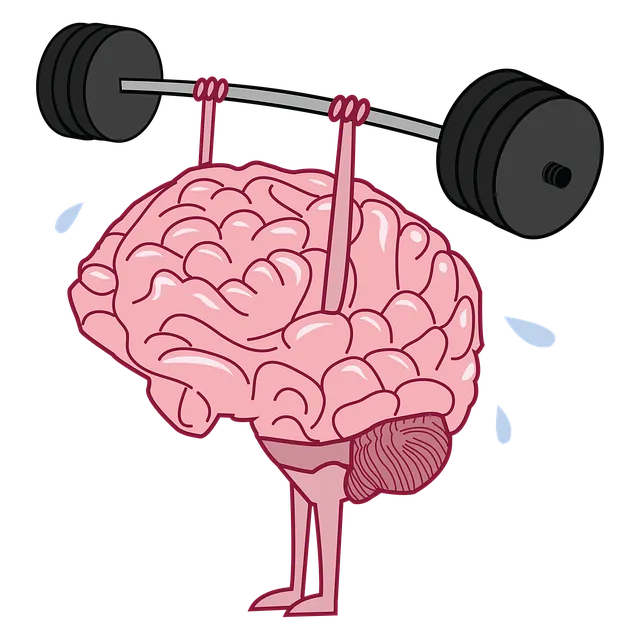Kaiser Permanente mental health Boulder emphasizes early detection, awareness, and proactive measures like resilience building, exercise, sleep, nutrition, and social support for depression prevention. Daily routines focused on well-being, including mindfulness practices, are crucial. Therapy (CBT), medication, and community resources provide a comprehensive approach to treatment, fostering emotional balance and reducing risk of depressive episodes through long-term strategies.
Depression prevention is a holistic approach that begins with recognizing early signs and symptoms, as highlighted by Kaiser Permanente mental health Boulder. This article guides you through understanding depression, adopting lifestyle changes for improved mental well-being, leveraging support from therapy, medication, and community resources available at Kaiser Permanente, and building resilience through effective coping strategies. By implementing these strategies, you can enhance your mental fortitude and prevent depressive episodes.
- Understanding Depression: Recognizing the Signs and Symptoms (Focus on early detection and awareness, as per Kaiser Permanente mental health Boulder)
- Lifestyle Changes for Improved Mental Well-being (Emphasize the role of daily habits in preventing depression)
- Seeking Support: Therapy, Medication, and Community Resources (Discuss various treatment options available at Kaiser Permanente mental health Boulder)
- Building Resilience: Coping Strategies for Long-term Prevention (Explore techniques to enhance coping mechanisms and overall mental fortitude)
Understanding Depression: Recognizing the Signs and Symptoms (Focus on early detection and awareness, as per Kaiser Permanente mental health Boulder)

Early detection and awareness play a crucial role in preventing depression, as highlighted by Kaiser Permanente mental health Boulder. Understanding the signs and symptoms is the first step towards combating this common yet serious mental health issue. Depression isn’t just about feeling sad; it’s characterized by persistent feelings of sadness, loss of interest or pleasure in activities once enjoyed, changes in appetite and sleep patterns, fatigue, difficulty concentrating, and even thoughts of death or suicide. Recognizing these symptoms early can prompt individuals to seek help before the condition worsens.
Kaiser Permanente mental health Boulder emphasizes the importance of proactive measures. By fostering resilience building and adopting mind over matter principles, individuals can better manage their mood. This includes cultivating healthy habits such as regular exercise, sufficient sleep, and balanced nutrition. Additionally, seeking social support from friends, family, or community groups can provide a strong buffer against depression. Early intervention and continuous awareness are key to preventing the onset of depression and promoting overall well-being.
Lifestyle Changes for Improved Mental Well-being (Emphasize the role of daily habits in preventing depression)

Establishing a routine rich in daily habits that promote mental well-being is a powerful tool in depression prevention. According to Kaiser Permanente mental health Boulder experts, consistent exercise, adequate sleep, and a balanced diet play pivotal roles in maintaining emotional resilience. Regular physical activity releases endorphins, our body’s natural mood elevators, while quality rest allows the brain to rejuvenate and process emotions effectively. Nutritious meals fuel not just the body but also support brain chemistry related to mental health.
Moreover, integrating mindfulness practices, such as meditation or deep breathing exercises, into one’s daily life can serve as a proactive approach to managing stress and cultivating emotional balance. These habits, when embraced consistently, act as a shield against depressive episodes by fostering a sense of control and enhancing overall mental resilience. Incorporating these lifestyle changes alongside seeking support from mental health professionals can further mitigate risks, especially for individuals identified through a risk assessment as being prone to depression.
Seeking Support: Therapy, Medication, and Community Resources (Discuss various treatment options available at Kaiser Permanente mental health Boulder)

Depression is a serious mental illness that requires professional help. Luckily, Kaiser Permanente mental health Boulder offers a range of treatment options to support those dealing with depression. Therapy plays a crucial role in prevention by providing individuals with coping strategies and tools to manage their symptoms. Cognitive Behavioral Therapy (CBT), for instance, has been proven effective in treating depression by identifying and changing negative thought patterns.
In addition to therapy, Kaiser Permanente mental health Boulder prescribes medication when necessary. Antidepressants can help balance brain chemicals that contribute to depression. Mindfulness Meditation is also encouraged as a complementary practice, promoting relaxation and emotional well-being. Moreover, the center actively engages in Mental Illness Stigma Reduction Efforts, ensuring a supportive environment for all patients seeking assistance. They also provide community resources, including support groups and educational workshops, fostering connections and empowering individuals to take charge of their mental health. For those at risk, completing a Risk Assessment for Mental Health Professionals is a proactive step towards early intervention and prevention.
Building Resilience: Coping Strategies for Long-term Prevention (Explore techniques to enhance coping mechanisms and overall mental fortitude)

Building resilience is a key component of long-term depression prevention, especially for individuals supported by healthcare resources like Kaiser Permanente mental health Boulder. Resilient individuals are better equipped to cope with life’s challenges and maintain a positive outlook, reducing the risk of depressive episodes. Techniques such as mindfulness meditation and cognitive behavioral therapy (CBT), integral parts of the Mind Over Matter principles, can be highly effective in building resilience. These practices teach individuals to recognize and challenge negative thought patterns and develop healthier coping mechanisms.
By incorporating these resilience-building strategies into daily life, people can strengthen their mental fortitude. Regular physical activity, maintaining a balanced diet, and prioritizing quality sleep are additional aspects of depression prevention that contribute to overall well-being. These lifestyle adjustments not only support mental health but also enhance an individual’s ability to navigate stress and adversity, fostering greater resilience over time.
Depression prevention is a proactive approach that empowers individuals to take charge of their mental well-being. By understanding the signs early, adopting healthy lifestyle changes, seeking professional support from resources like Kaiser Permanente mental health Boulder, and building resilience through effective coping strategies, one can significantly reduce the risk of depression. Combining these strategies creates a holistic framework for long-term mental health management, fostering a sense of balance and overall well-being.






